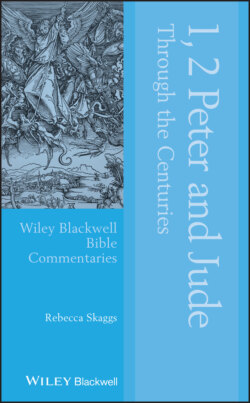Читать книгу 1, 2 Peter and Jude Through the Centuries - Rebecca Skaggs - Страница 25
Reformation
ОглавлениеLater, Calvin would use this passage as one of the preeminent supports for his doctrine of election:
Hence when Peter calls them elect according to the foreknowledge of God, he is showing that the cause of it depends simply on God alone, because he of his own free will has chosen us. Thus the foreknowledge of God excludes every worthiness on the part of man (Calvin, Comm., 1963: 230).
In contrast, Arminius reads vv.1–2 as a refutation of Calvin’s thesis of foreknowledge as election. He defines “foreknowledge” as the knowledge of something before it happens. Although God knows who will believe, he does not cause it; those whom he foreknows, he also elects to be saved (for the first translation from the Dutch and explanation of Arminius’ Declaration of Sentiments, see Stephens, 2012).
John Bengel (1687–1752), a learned German exegete, wrote a commentary on the whole Bible which has influenced and continues to influence biblical scholars. He points out that Peter’s words on foreknowledge here (along with v.20) are broad concepts, incorporating also good‐will and love; in fact, he understands this reference to include the mystery of the Trinity as a summary of the entire epistle (1981: 727). We see little if anything of the controversial issues to come. Peter will address this issue in more detail later in the epistle.
John Wesley goes further and sidesteps the entire issue of sovereignty and free will: “there is no foreknowledge or after‐knowledge. All is present to God” (WesleyCenterOnline: ccel.org).
